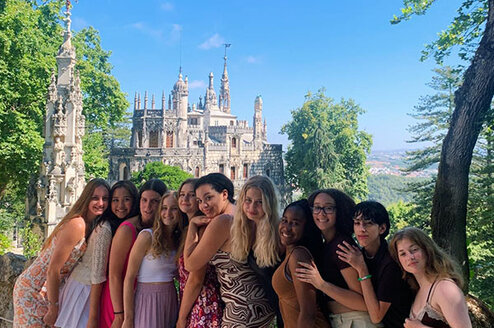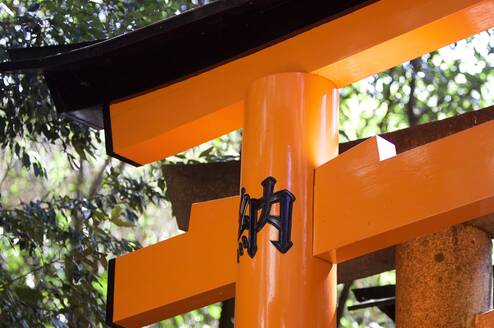High School Study Abroad in South Korea
High School Study Abroad Programs in South Korea
About
Studying abroad in South Korea during high school can take many forms, from the traditional exchange program to experiential learning and service learning projects. Spending a semester, summer, or even a few weeks in Korea during school is about more than just beefing up your resume for college applications. Immersing yourself in Korean culture and language is an incredible way to learn more about the world and grow as a person -- all before graduation!
Types of high school study abroad programs in South Korea
There are a lot of ways to study abroad in South Korea as a high schooler. Here are some of the most popular ways to do it.
- Semester or academic year exchange: When you think about Korean study abroad programs, you may imagine a traditional exchange where you study in a public or private high school alongside South Korean peers. High school exchange programs in Korea fulfill academic requirements in your home country and are a great way to integrate into high school life with other Korean teens.
- Summer: Summer immersion programs usually combine learning and travel with a group of other high schoolers from around the US. Programs can last several weeks to several months and allow you to see cultural sites around the country while learning about Korean culture, history, and language.
- Language learning: Attending a language program through a private academy or a university is the best way to begin learning or continue perfecting your Korean. If you’re ever wanted to know what your favorite K-pop songs mean, what better place to find out than in Korea!
- Service learning: Service learning projects can help you earn volunteer hours that might be necessary for graduation. These projects are led by organizations that promote cultural exchanges and learning opportunities that center around immersion, volunteering, and intercultural relationship building. These trips often take you to multiple cities and are packed with opportunities to meet new friends and learn more about the history and culture of South Korea.
Cost of studying abroad in high school in South Korea
Knowing your goals and having a budget in mind will help guide your choice of learning experience in South Korea during high school. Don’t forget to research scholarships and other sources of funding (like fundraising) to make your trip more affordable.
Program fees
Program fees will vary based on the type of program you choose and the length of time the program lasts. Those that include extras like homestays and meals tend to cost a bit more upfront but could save you money (and logistical headaches) in the long run. You may pay between $500 to up to $15,000 depending on whether you choose something like a language school or a more expensive high school semester exchange.
Scholarships
While it’s rare to find free Korean exchange programs for high school students, scholarships, grants, and other funding can help lower costs.
Many programs will offer their own scholarships or they can point you in the right direction to apply for external funding, which can help reduce the costs of program fees or other expenses such as flights and housing.
How to study abroad in South Korea during high school
Studying abroad in South Korea during high school may seem complicated but if you break down the steps, it’s a lot more accessible than you’d think.
- Research programs. Here on GO we have great programs reviewed by other teens who can vouch for the pros and cons and give you an honest picture of what to expect.
- Prepare your application materials. Fill out the application and gather any documents you may need like a parental consent form, health check, or academic transcripts. If you don’t already have a passport, now’s the time to apply!
- Apply for a visa. Once you have your program secured and your passport in hand, you may need to apply for a visa depending on your citizenship. If you’re a US citizen and your study or volunteer program is longer than 90 days, you’ll need a visa.
- Start budgeting and exploring scholarships. Apply for scholarships, start crowdfunding, and lay out a budget for your time overseas. Make sure you arrive in Korea with a financial safety net for emergencies!
- Prepare for your adventure overseas! Book your plane tickets and make your packing list – you’re going to Korea!
What to know before studying abroad in South Korea in high school
If you’re planning to do an exchange in a Korean high school as an international student, there are a few things to know before you go.
- Korean high schools tend to focus highly on testing and there is often strong competition in classes to be the best. If you’re not used to spending a lot of time studying, you’ll need to prepare to adjust your habits to keep up.
- You’ll most likely need at least a basic understanding of Korean before enrolling in high school. If you need some extra help, you can always enroll in a language program, too!
- In major cities like Seoul and Busan, you’ll probably find many people speak some English if your knowledge of Korean is low or non-existent. However, in small towns and rural areas, you may have to resort to Google Translate or miming to get by. Don’t worry though, this will help improve your Korean quickly!
- Many programs that include housing are homestays rather than dorms or apartments. It may be an adjustment to live with a Korean family but the total immersion will improve your language skills and help you to form life-long bonds.
- Be prepared to do a lot of walking while you’re in Korea. Even the cities can be quite hilly so if you’re not used to walking, you may want to start building up to longer distances.
- Don’t overpack! Korea is known for its fashion, beauty, and tech industries so you’ll likely buy things while you’re there. You may even find you like your new Korean products more than what you have back home!
- Meal times are generally aligned with what you’re used to back home. Although Korean food does feature a lot of meat and seafood, vegetarians and vegans can find plenty of tasty and healthy things to eat. Major cities, including the capital Seoul, will have a wide range of options catering to every diet.












